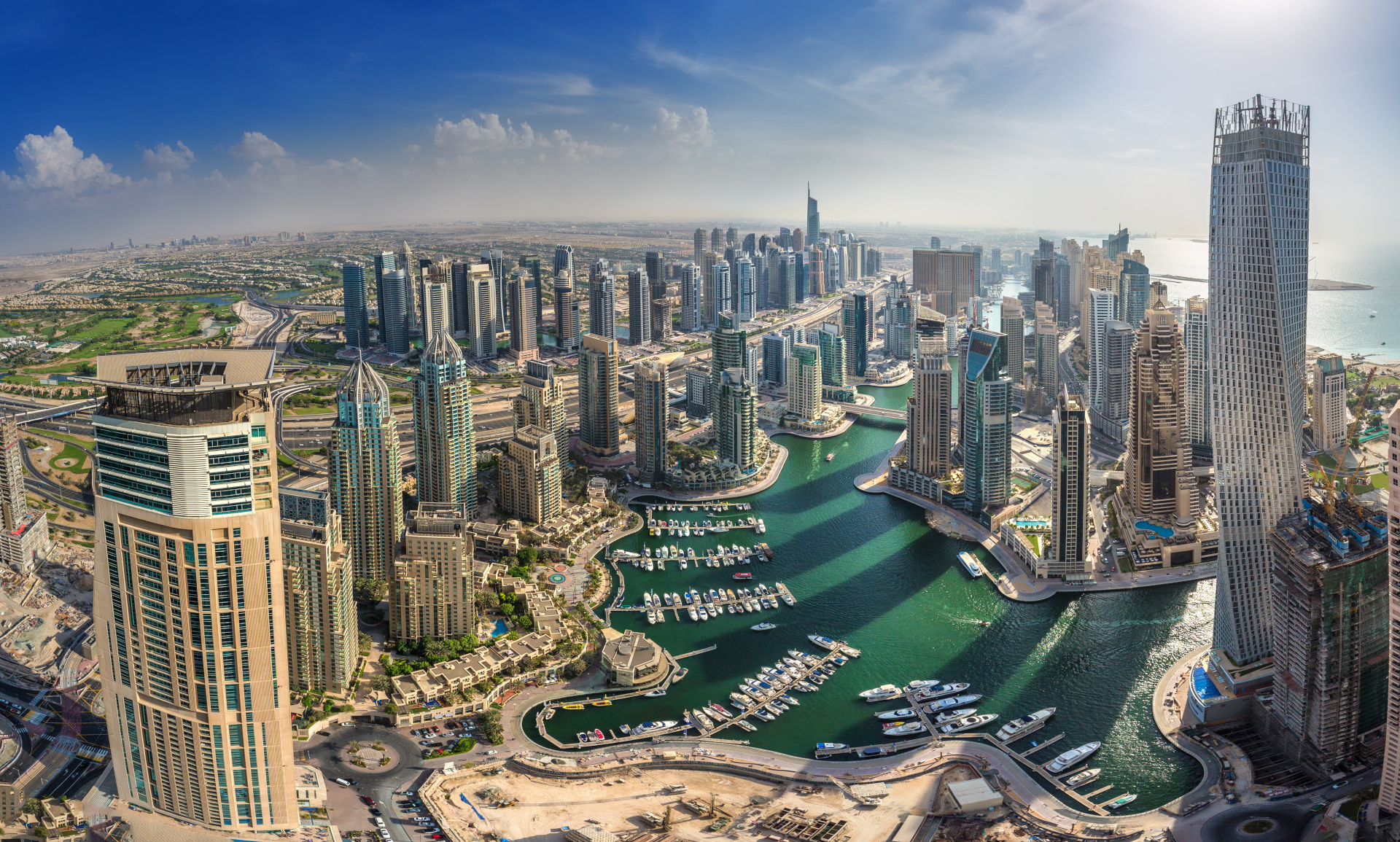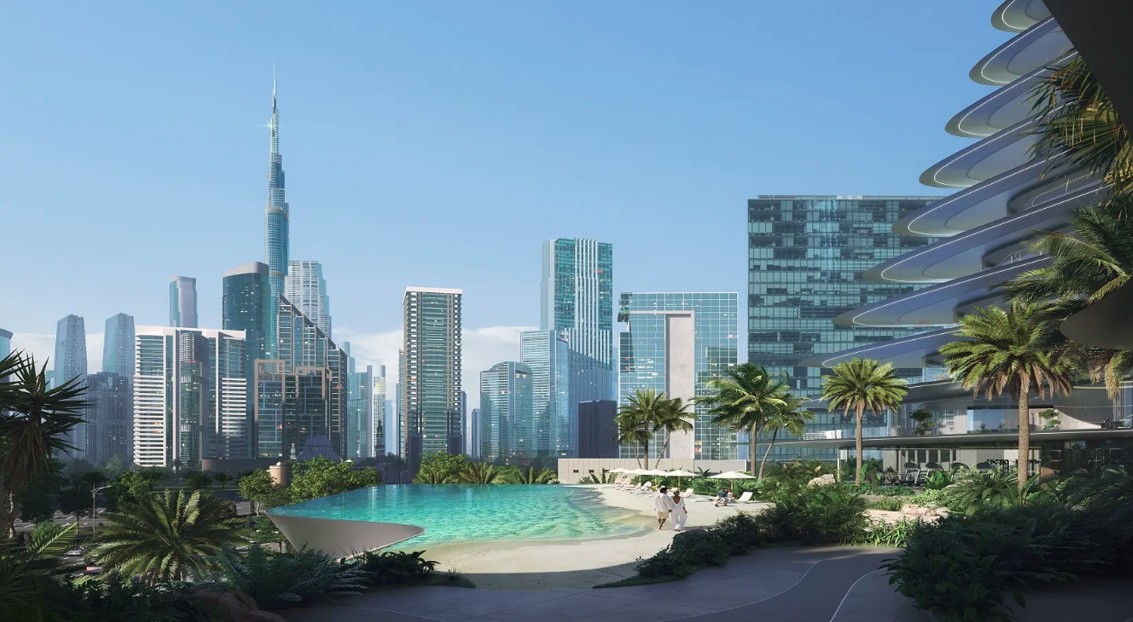Dubai is one of the most dynamic real estate markets in the world. The city boasts modern infrastructure, tax-free conditions, and high rental returns. The purchase process is clearly structured and accessible to buyers of all nationalities. The legal basis for foreign ownership is Article 4 of Law No. 7 of 2006. While Emiratis and GCC citizens are allowed to purchase real estate in all parts of Dubai, international investors can purchase properties in designated freehold and leasehold areas.
Dubai was the first emirate in the UAE to allow foreign buyers to purchase properties in select areas. The right to leasehold was initially introduced in 2001, before a government decree in 2002 authorized full ownership of properties and land in certain zones.
There are two types of properties that foreign investors and expats can buy in Dubai. To make an informed choice, buyers should clearly understand the differences between freehold and leasehold properties.
Here is an overview of the two models and the legal basis
Leasehold: When purchasing a leasehold property, the buyer receives the right to use the property for a fixed term, up to a maximum of 99 years. However, the land remains the property of the original owner, to whom it reverts after the lease term expires.
Freehold: A freehold buyer acquires 100% ownership of both the property and the associated land, without any restrictions. They can sell, rent, or live in the property at will, without any time restrictions.

The process of acquiring real estate in Dubai is clearly structured and legally transparent for foreign investors. To ensure a smooth purchase process, it is essential to carefully follow each step and adhere to the legal framework.

Buying or selling a property in Dubai requires a number of specific forms and contracts that are essential for a legally compliant and transparent transaction. Proper documentation plays a crucial role in the real estate market and serves to protect all parties involved.
These forms ensure that transactions comply with legal requirements and that properties are properly marketed. This provides an overview of the most important documents to ensure a smooth and secure property purchase or sale in Dubai.
Form A is an essential document in the Dubai real estate market and serves as an official contract between the agent and the seller of a property. It regulates the legal framework of the collaboration and obligates the agent to actively market the property and provide professional support to potential buyers.
The document must contain detailed information about the owner and the property itself, including the agreed commission structure. If the property is jointly owned by several owners, the signatures of all co-owners are required.
The document must contain detailed information about the owner and the property itself, including the agreed commission structure. If the property is jointly owned by several owners, the signatures of all co-owners are required.
Form B forms the contractual basis for the collaboration between a buyer and an agent in Dubai. It guarantees the buyer the support of a qualified real estate advisor who will act exclusively in their interest to find the right property.
By signing this document, the agent is legally authorized to represent the buyer in all aspects of the purchase. This includes organizing and accompanying viewings, participating in auctions, and collaborating with other advisors, provided this is regulated by a signed Form I.
By signing this document, the agent is legally authorized to represent the buyer in all aspects of the purchase. This includes organizing and accompanying viewings, participating in auctions, and collaborating with other advisors, provided this is regulated by a signed Form I.
Form I is an official document issued by the Dubai Land Department (DLD) that governs the collaboration between a broker and other involved real estate consultants. It is used when a principal broker engages external consultants or co-brokers to jointly market a property or serve prospective buyers.
The form defines the terms of the collaboration, including commission allocation, responsibilities, and compliance with regulatory standards. It ensures that all parties involved are registered, licensed, and legally protected—particularly during viewings, auctions, or negotiations that extend beyond the original brokerage agreement.
Form F, officially known as the RERA Unified Contract F, is the standard purchase agreement for real estate in Dubai prescribed by the Dubai Land Department (DLD) and the Real Estate Regulatory Agency (RERA). It is the only officially recognized contract document that serves as the basis for both registration and transfer of ownership. Form F is prepared exclusively via the official DLD systems (Trakheesi or Oqood) by licensed RERA brokers and must be signed by the buyer and seller. No transfer of ownership can take place in Dubai without a registered Form F.
Previously, the MOU was a separate preliminary agreement that set out the essential details of a real estate purchase (price, payment terms, handover date). With the introduction of Form F, this document is now the formal and legally binding replacement for the MOU. Form F assumes its function but goes beyond it, as it is officially prescribed, registered, and immediately legally effective.
The SPA is the full-fledged purchase agreement that governs all the details of a transaction. For existing properties, the signed and registered Form F also serves as the SPA. For off-plan properties, a separate Developer SPA is concluded in addition to Form F. This Developer SPA contains project-specific clauses such as the construction progress plan, completion dates, and acceptance conditions. In this case, Form F serves as the official contractual basis for registration in the Oqood system, while the Developer SPA regulates the individual contractual relationship between the buyer and the developer in detail.
For existing properties, Form F simultaneously serves as both the MOU and the SPA. After signing, it is registered with the DLD, the purchase price is paid according to the contractually agreed terms, and the Title Deed is subsequently issued to the buyer.
For off-plan projects, Form F is registered in the Oqood system after signing, thus securing the buyer as the designated owner during the construction phase. In parallel, the Developer SPA regulates the specific project conditions. Upon completion and handover, the Oqood registration is converted into a Title Deed registration, which issues the final title deed.
Form F is not just a formal purchase agreement in Dubai, but the central and essential document that legally secures the buyer's position. It combines the functions of the former MOU and SPA for existing properties and, together with the developer's SPA, forms the basis for official title registration for off-plan properties.
If a buyer or seller wishes to terminate their relationship with a broker, a formal termination notice is required. The broker must be given seven days' notice and a valid reason for terminating the agreement must be stated.
The official termination document is Form U, which legally terminates the existing contract between both parties. Signing this document ensures that the termination is carried out properly and that both parties are aware of their future rights and obligations.
A legally valid lease agreement between landlord and tenant is a fundamental requirement for any rental in Dubai. To ensure the validity of the agreement and legally protect the rights of both parties, it must be registered in the Ejari system.
Ejari registration is required by law and serves to avoid disputes, secure official documents, and provide authorities with transparent traceability of tenancies.
